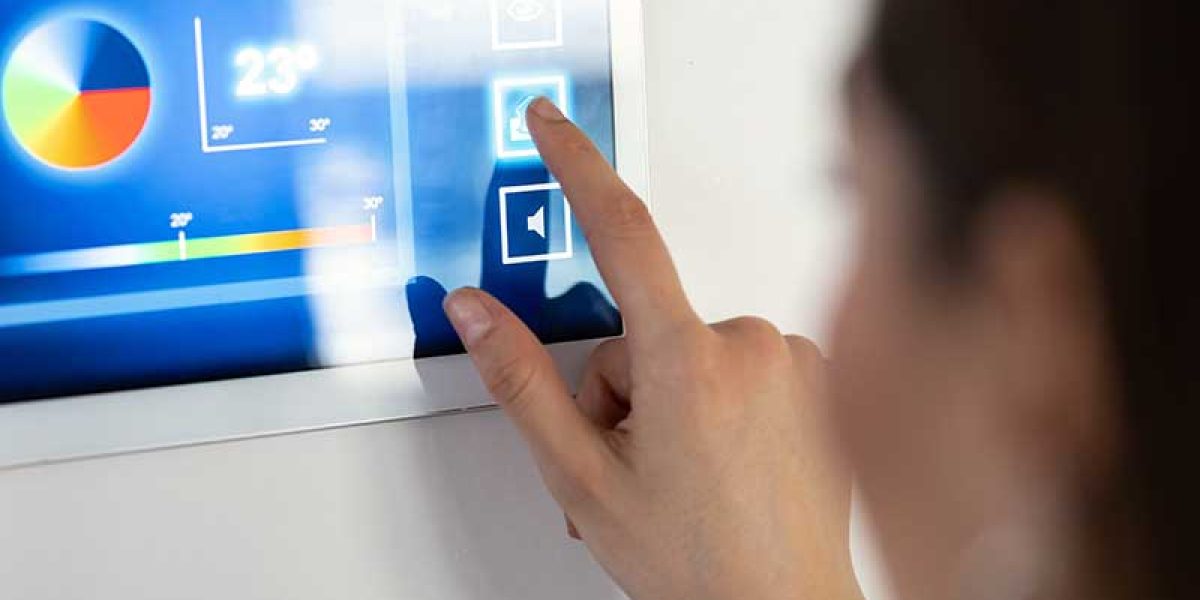In this age of rapid technological growth, the concept of the home has expanded beyond its traditional four walls to become a hub of smart technology and creativity. The incorporation of technology into home design has not only improved usefulness and comfort, but also considerably increased energy efficiency. The evolution of smart homes is resulting in a more connected, responsive, and sustainable living environment. Let’s look at the main components that make up these futuristic homes, such as smart lighting, heating and cooling systems, automatic blinds, and smart furniture, and see how they’re changing our living spaces.
Smart lighting illuminates efficiency and comfort
The introduction of smart lighting systems has changed the way we brighten our houses. These technologies, which can be managed with smartphones or voice assistants, provide exceptional ease and efficiency. Smart lighting, with its flexibility to adapt brightness and color temperature, can create the ideal ambiance for any occasion while consuming less energy. The incorporation of sensors enables automated adjustment based on time of day or the presence of people, ensuring that no energy is spent on illuminating vacant places.
Heating and cooling: a leap toward energy efficiency
Smart heating and cooling systems provide a major improvement in residential energy efficiency. These systems can learn from your behaviors and regulate the temperature accordingly, ensuring that your home is constantly at your desired comfort level without wasting energy. Remote control capabilities enable homeowners to modify their home’s temperature from anywhere, saving energy on heating or cooling an empty house. The end effect is a more pleasant living space and cheaper energy expenditures.
Automated Blinds: Convenience and Energy Savings
Automated blinds are another feature of smart homes that combines convenience and energy efficiency. These blinds can naturally manage the temperature of your home by changing to the position of the sun, decreasing your dependency on heating and cooling equipment. This not only reduces energy expenditures, but also protects furniture from sun damage. Automated blinds, which have programmed schedules, provide privacy and comfort while also helping to overall energy efficiency in the home.
Smart furniture is the future of comfort and utility
Smart furniture is redefining comfort and utility in today’s smart homes. From sofas that can wirelessly charge your electronics to beds that can track your sleep patterns and adjust for maximum comfort, this new wave of furniture is making our homes more sensitive to our demands. The incorporation of technology into furniture not only improves convenience, but also creates new opportunities for health monitoring and individualized comfort.
Developing a Connected and Responsive Environment
A smart home is defined by its capacity to create a linked and responsive environment. The Internet of Things (IoT) allows objects to connect with one another, resulting in a seamless environment that adapts to your lifestyle. This interconnection not only improves your home’s usefulness and comfort, but it also dramatically increases energy economy by ensuring that equipment only turn on when they are needed.
The Impact on Sustainability
One of the most major advantages of smart homes is the ability to lessen our environmental footprint. Smart houses can help battle climate change by optimizing energy usage. The efficiency benefits from smart technology can considerably reduce a household’s energy usage, resulting in lower greenhouse gas emissions and a more sustainable future.
The use of technology into home design is making our living spaces more connected, efficient, and comfortable. As we progress, the ongoing evolution of smart homes will surely play an important role in creating the future of living. With each invention, we get closer to a world where our homes not only shelter us, but also adapt to our needs, save energy, and contribute to our overall well-being. The smart home revolution has begun, and it is reshaping what it means to be at home for future generations.








